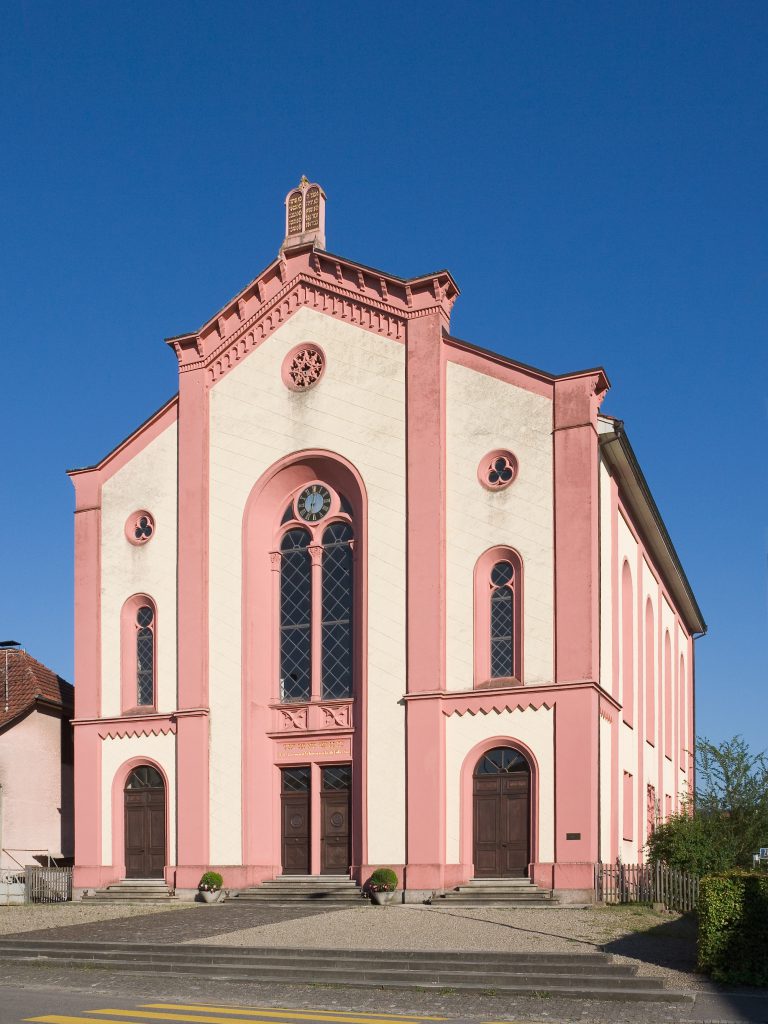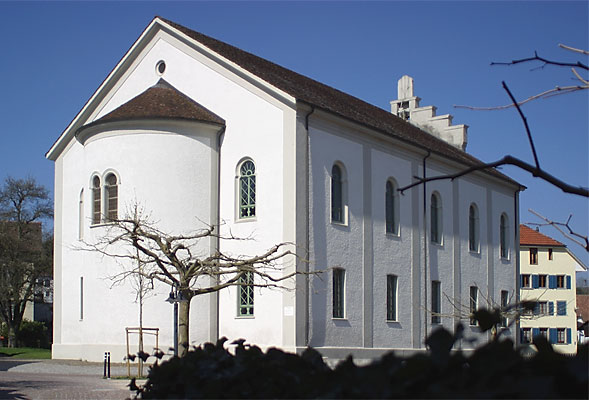Until the end of the eighteenth century, the two villages of Endingen and Lengnau were the only ones that authorized the permanent establishment of Jews. Beginning in 1622, they resided here under the rubric of “protected foreigners”, and their communities were able to practice religion and conduct internal administrative affairs in total independence. A document from this year attests to their presence.

In 1750, the two communities purchased a plot of land midway between the towns for a cemetery . Before this, Jews were obliged to bury their dead beyond the Rhine on an island which was later purchased by the town of Waldshut. The Jewish cemetery has 2700 graves.
The first synagogues date from 1750 for Lengnau and 1764 for Endingen . They were renovated in 1848 and 1852 respectively. They appear in a book by Johann Caspar Ulrich published in 1768.
They resemble churches, with a clock on their pediments and steeples, elements required by the authorities. In 1850, there were 1515 Jews present in these two cities. These Jews came mainly from the towns of Haute-Alsace (Buschwiller, Hegenheim, Hagenthal…), the Baden region (Randegg, Wangen, Gailingen, Worblingen…) and Hohenems. Those cities were close to Switzerland, with which the general population had economic and cultural ties.

The permits granted to migrate to the other municipalities caused a constant fall in this number. The wave of emancipation of the Swiss Jews took place throughout the 19th century, depending on the municipality.
In Endingen, a churchless village, it was the synagogue on the central square that struck the hours. The building was ultimately renovated in 1998.
The town’s policy of tolerance must not overshadow the discrimination that was still current around 1910: all houses had two front doors, one reserved for Christians and the other for Jews. There are many houses that bear witness to this period. Unlike most of the Jewish ghettos in Europe, the traces of Jewish life are still very present in these villages. Among the personalities from these villages is William Wyler, the director of Ben Hur and Funny Girl.
Since 2009, a Jewish cultural tour is presented by the local authorities to pay tribute to the historical heritage of the villages. Visitors can walk between synagogues, cemeteries, double-entrance houses, as well as an old mikve and shops.
In 2018, there were only about 20 Jews left in Lengnau and Endingen. Most of them were elderly people living in a retirement home.